This is my year of reading longer books and so far that’s going ok. I’ve gone back to Proust who I hadn’t read since 2018. I’ve also gone back to Tolstoy and I’ve just finished Maria Enriquez’ rather huge Our Share of Night.
That does mean there’ll likelier be fewer books in each of these updates, but hopefully some very good books.
Emma, Jane Austen
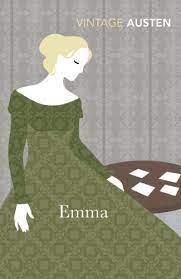
I mean what is there to say? Firstly I suppose that it really is very, very good. It’s tremendously well written, remains very readable and is often pretty funny too. Mr Wodehouse’s utter solipsism is particularly hilarious.
Anyway, highly recommended. I know it’s not exactly original to recommend Austen’s Emma, but there’s a reason this remains so popular.
The Last Days of New Paris, China Miéville
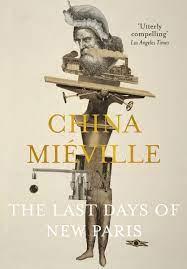
China Miéville is an immensely talented writer of what for want of a better term I’ll call literary fantasy (though I think he’d just say fantasy). Miéville avoids tired post-Tolkien pastiche, instead embracing the freedom that use of the fantastic can bring.
Here we’re in a world where the Second World War has continued after 1945. Something strange happened in Paris, giving life to figures and symbols from surrealist art and creating a nightmare city where surviving Nazi forces battle impossible beings. The novel follows a French resistance fighter as he wearily continues his small part of the war while working with one such creature, the elegant corpse as shown on the cover art.
If you’ve any knowledge of surrealism it’s a lot of fun, and honestly it is if you don’t too plus there’s an appendix which explains the many references. Don’t let the fantasy label put you off here – this is a clever novel which deserves a wider readership.
The Captive, Marcel Proust (translated by Scott, Moncrieff and Kilmartin)
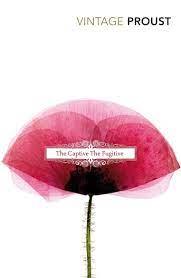
Gosh this gets dark. I had no idea. In this volume the narrator effectively imprisons his girlfriend Albertine in his apartment, obsessively tracking her movements and interrogating her friends and driver out of an obsessive jealousy. He is manipulative and controlling, more focused on preventing Albertine having any life than having one of his own.
Emma at bookaround describes this here as claustrophobic, and it’s absolutely the right word. It’s a very difficult read, as you’re absolutely immersed page after page after page in what is frankly a sick mind.
Emma is great on how this works in the French, which is fascinating. It’s the language of property and of domination, not of love. The irony, and again Emma touches on this, is that in imprisoning Albertine he imprisons himself too. Life as her jailer is too all-consuming to allow time for anything much else. He disappears from society because to take part in it would mean stopping his ceaseless observation of Albertine.
As ever I love Proust as a writer, but this is one of those where the quality of the writing if anything makes it even harder to read. I suspect most readers don’t get this far or I’d expect more discussion of quite how extraordinarily challenging this volume is.
Tokyo Express, Seichō Matsumoto (translated by Jesse Kirkwood)
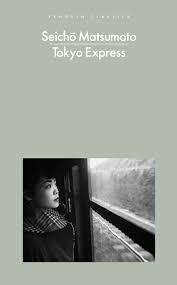
After the Proust I needed some light relief. This is a lovely Penguin imprint of a classic Japanese murder mystery. It’s actually one that could only take place in Japan in fact, because the entire plot hangs on the intricacies of the Japanese rail system and whether or not a suspect’s alibi stands up or if somehow they could have used the rail network to cross the country in time to commit the crime.
Once in Japan I was on a platform where a train was 30 seconds late. People got restive, checked their watches, looked concerned. In the UK I think we still define within 15 minutes as being on time. It’s fair to say this novel’s plot wouldn’t work in Britain.
It’s fun, well written and absolutely classic golden age crime stuff. Stu did a nice write-up of it here. If you’ve any liking for the genre you’ll like this. Also, did I mention it’s a lovely imprint? Penguin have done Matsumoto proud.
Italian Ways, Tim Parks
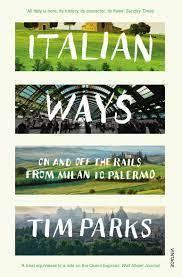
Continuing with the trains theme, this is a non-fiction book by novelist and academic Tim Parks in which he explores the culture of his native Italy through its railway system. It sounds dry but is actually often very funny, and if you’ve spent any decent length of time in Italy you’ll recognize a lot that he discusses.
Parks has written several books about Italy. For me this was one of his best. Perfect if you have an Italian holiday coming up involving some rail travel…
Sisters, Daisy Johnson
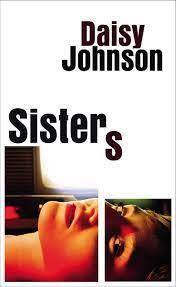
After all that light relief I was ready for some dark again. Who better than Daisy Johnson? After all, I liked both her short story collection Fen and her first novel Everything Under. Johnson is a very physical writer, bringing out the body and all its mess in her fiction. Here she uses gothic horror to examine the relationship between two sisters, one dominant, manipulative and daring and the other shyer and more cautious.
Johnson is never less than interesting as a writer, but for me this wasn’t quite the right book at the right time. It’s well written and I see why people are excited by it, but it wasn’t me. It is though another interesting example of the recent trend of female writers successfully using the horror genre to explore psychological and societal issues.
The Judge and his Hangman, F. Dürrenmatt
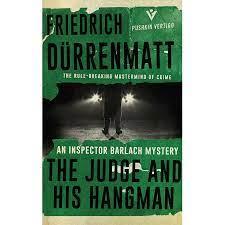
Time for a bit more crime. Here we have a Swiss classic from 1950. A police officer is found shot dead in his car. Inspector Barlach, terminally ill with stomach cancer, leads the investigation.
Initially it seems straightforward enough. Barlach is a highly experienced detective but with personal problems in the form of his illness and a perception that he’s past his prime, all of which impact his investigation. Quickly however, it becomes apparent this is less a murder mystery and more a moral inquiry.
Jacqui wrote about this here and talks about the dilemma at the heart of it. For me, it didn’t quite work. I thought the whole scenario just a bit too unlikely and the killer a bit incredible in his motivations. Jacqui llked it much more and to be fair this isn’t entirely my genre, so I’d encourage you to read Jacqui’s review.
Stealing for the Sky, Adam Roberts
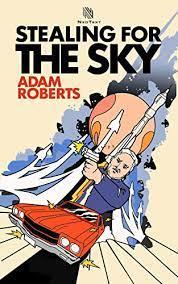
Adam Roberts is one of the more intelligent SF writers about today. His books often push genre boundaries and display a sharp intelligence with a keen sense of people and their motivations (many SF writers are much better on the science than they are the fiction, Roberts can do both).
This is the lighter side of Roberts. It’s an intentional homage to Richard Stark’s novels with a Parker-esque near-future hero who’s been paid to steal an ex-soviet rocket capable of getting a new micro-state its own spaceflight capability. It’s fast moving high-octane stuff and lots of fun. It leaves very clear room for a sequel and I’ll definitely read the next one.
The Fugitive, Marcel Proust (translated by Scott, Moncrieff and Kilmartin)
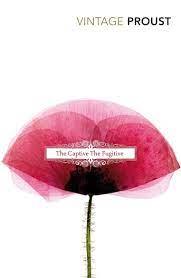
Back to Proust! I have to admit I returned to Proust with a bit less enthusiasm this time, after the challenges of The Captive. Happily this isn’t quite so grim. Albertine’s left the narrator and he’s working through that, then through conflicting emotions of grief balanced against the refreshed interests provided by his return to society.
The narrator is still a creep. His attitude to women even for the period isn’t great, but because he’s back in society we’re back with Charlus and other classic characters and back to Proust’s marvelous observations. Emma wrote this one up too, here, and like me found it a welcome breath of air after The Captive.
The Girl with all the Gifts, M.R. Carey
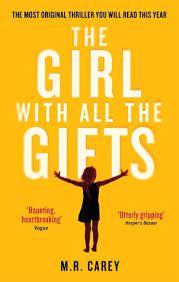
Post-Proust wind-down was this now classic horror novel by MR Carey, later turned into a very successful film. Humanity has succumbed to a fungus-driven zombie apocalypse (this helped create that particular fictional trend rather than cashing into it). A military base is working with children who are infected but not mindless, engaging in horrific experiments in the hope of finding a cure.
Unsurprisingly it all goes a bit wrong and soon a handful of survivors and one of the infected children are out in the world with very little to keep them safe. The wonderfully sinister chief scientist, played superbly by Glenn Close in the film wants to dissect the infected girl but her teacher sees her humanity and wants to protect her.
For a novel involving the end of the world and an awful lot of biting it’s very well done and I can see why it was such a hit. It’s pacy, cleanly written and while it’s less original now that’s only because it’s been much copied. A great palate cleanser if you don’t mind a few people getting eaten in your fiction.
And that’s my January and February! I’ll try to update on March before too long, the month of Anna Karenina…
